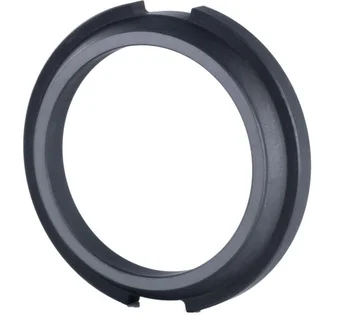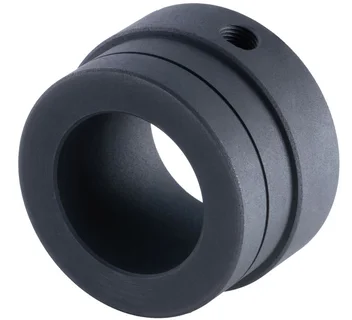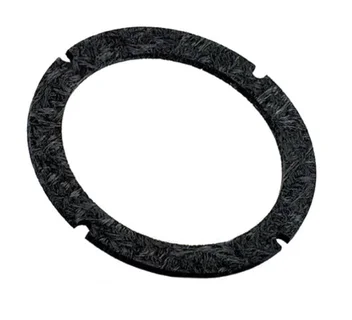
Elevating Aerospace with Mersen
The Aerospace industry, a symbol of human achievement, constantly seeks to overcome challenges of performance, innovation and sustainability.
Advanced materials like graphite and Sintered Silicon Carbide (SSiC) emerge as pivotal materials. They ensure that aerospace systems are not just efficient, but also forward-thinking and resilient.
-
Graphite Specialties in the Aerospace Industry: a Strategic Consideration
The aerospace industry faces relentless challenges in its pursuit of greater efficiency, safety, and sustainability. As aircraft designs evolve to meet these demands, the importance of advanced materials, particularly graphite parts, becomes paramount.
Graphite, with its unique properties, addresses the industry's need for weight savings and high-temperature resilience, making it indispensable in modern aerospace applications. As the sector continues to push boundaries, materials like graphite bearings and shaft seals are not just solutions but strategic assets. They underline the pivotal role of advanced materials in shaping the future of aerospace.
-
Mersen's pioneering role in aerospace
With a global presence spanning five continents, Mersen has established itself as a leader in providing innovative solutions for power management, power transfer, and advanced materials for propulsion systems . Our commitment to excellence and innovation has made us a trusted partner for major aerospace players.-
50.00
years of expertise in the aerospace market
-
600.00 °C
Operating temperature
-
4.00
times lighter than steel
-
25.00
tons reduction of CO2 emissions for every kg saved on an aircraft
-
-
Mersen: A trusted aerospace partner ensuring excellence
As someone deeply involved in the aerospace industry for years, I can confidently vouch for Mersen's consistent dedication to providing top-tier aerospace solutions. Their deep-seated expertise and exceptional customer service truly set them apart.Alex
Chief Aerospace Engineer
With a legacy rooted in providing specialized solutions for the aerospace sector, when partnering with Mersen, clients are not only assured of state-of-the-art products but also of comprehensive support throughout their journey.
-
Mersen in aeronautics
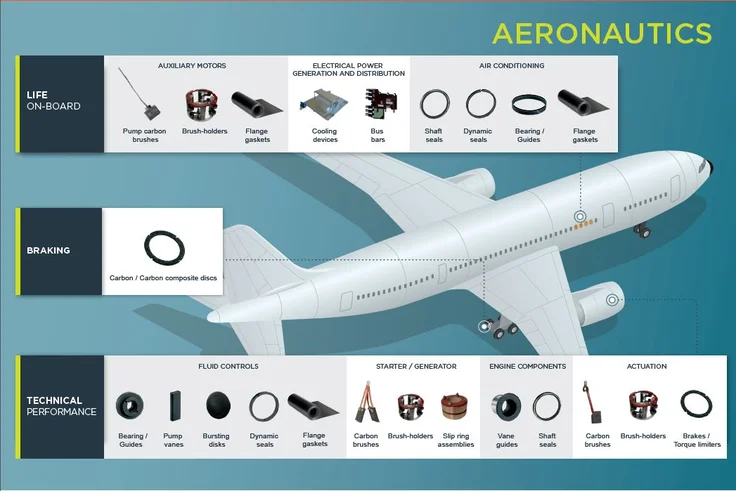
-
What are advanced materials?
In the aerospace industry, advanced materials are engineered to meet specific performance criteria.
Main advanced materials are graphite, Solid Silicon Carbide or Sintered Silicon Carbide (SSiC) and Carbon/Carbon composite. They are characterized by their functionalities and properties. Some advanced materials have the ability to withstand extreme conditions. For example, Solid Silicon Carbide composite is known for its thermal stability, and graphite is used in various applications in severe conditions of cryogenic and hot thermal conditions. Each material or component plays a pivotal role in enhancing the efficiency and safety of aerospace technologies. Reach compliance material of Mersen is required for insulation, composite and ceramic solutions (graphite, carbon and composite, Silicon Carbide).
-
Mersen range of advanced materials
Mersen, recognized globally for its expertise in advanced materials, offers an extensive portfolio of materials specifically engineered for the aerospace sector. Each material in this range is meticulously developed, emphasizing precision and technical rigor, to ensure they meet the highest standards of performance and durability.
-
From starter motor brush to slip ring for generator
Power transfer technologies play a pivotal role in the aerospace industry, ensuring that electrical energy is efficiently transferred and distributed within various aerospace systems.
These technologies encompass components such as generator brushes, starter motor brushes, and slip rings for generators, all of which are vital for the smooth operation of aircraft and spacecraft. Mersen offers solutions tailored to the unique demands of the aerospace sector, including specific brush grades for aircraft applications and advanced designs for slip rings for generators and brush-holders for generators.

-
From shaft seals to graphite bearings
Mersen's prowess in advanced materials is further exemplified in its graphite specialties offerings tailored for the aerospace sector. Graphite, with its unique properties such as high thermal conductivity and low thermal expansion, is indispensable in aerospace applications, especially in components like shaft seals and graphite bearings. Beyond these, Mersen's portfolio also encompasses Sintered or Solid Silicon Carbide and Carbon Fibre Composite brake discs (CC composite brake discs), each engineered to the highest specifications. In applications where material integrity, performance under extreme conditions, and longevity are essential, Mersen's graphite specialties provide a benchmark, underpinning many aerospace systems with reliability and precision.
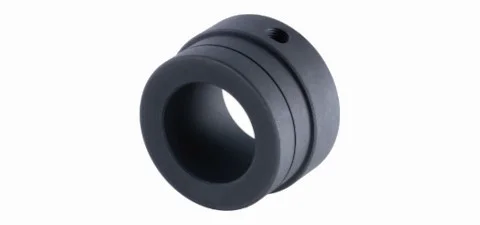
-
Solutions for power transfer technologies and power management in aerospace
Mersen delivers bespoke solutions, meticulously crafted to address the distinct challenges of this industry.
-
Brushes
Brushes are integral components in many electrical machines, acting as the conduit for electrical current between stationary wires and rotating parts. In the aerospace sector, brushes are tailored to specific applications to ensure optimal performance. Mersen offers a range of brushes tailored for the aerospace industry. The Generator Brush is designed for power generation systems onboard aircraft. The Starter Motor Brush is crucial for initiating the aircraft's engine. Aerospace brushes are designed with specific materials for high-altitude flights.
The Aeronautics Carbon Brush, a Mersen specialty, is crafted from carbon to ensure efficient power transfer in aerospace applications. Additionally, the Auxiliary Motor Brush is used in secondary or support motors within the aircraft, ensuring that auxiliary systems run smoothly.
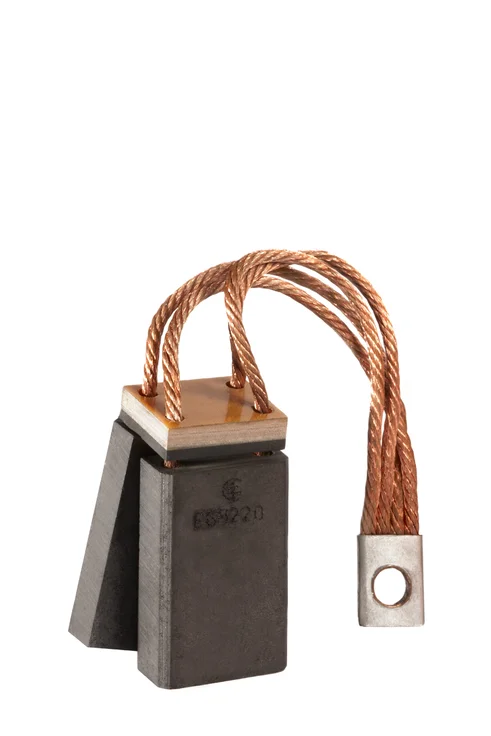
-
Generator Components
Generators are pivotal in producing electrical power for aircraft systems.
Mersen provides key components for these generators, ensuring reliability and efficiency. The Slip Ring for Generator allows the transmission of power and electrical signals from a stationary to a rotating structure. The Brush-Holder for Generator, another Mersen solution, is designed to hold the brush in place, ensuring consistent contact and efficient power transfer.
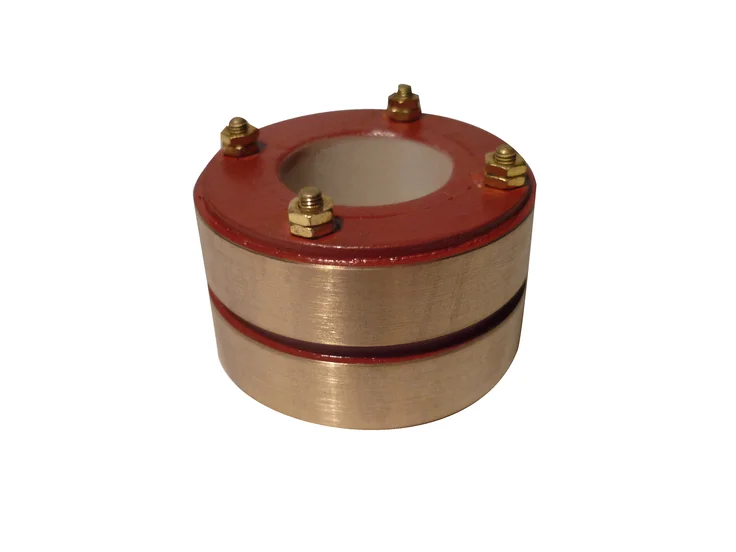
-
Cooling and Energy Storage
Managing heat and storing energy are vital in aerospace systems to ensure safety and optimal performance.
Mersen's heat sinks are components designed to dissipate excess heat from electronic and mechanical devices, preventing overheating. Meanwhile, capacitors are used for energy storage, releasing energy when needed, especially in systems that require quick bursts of power.
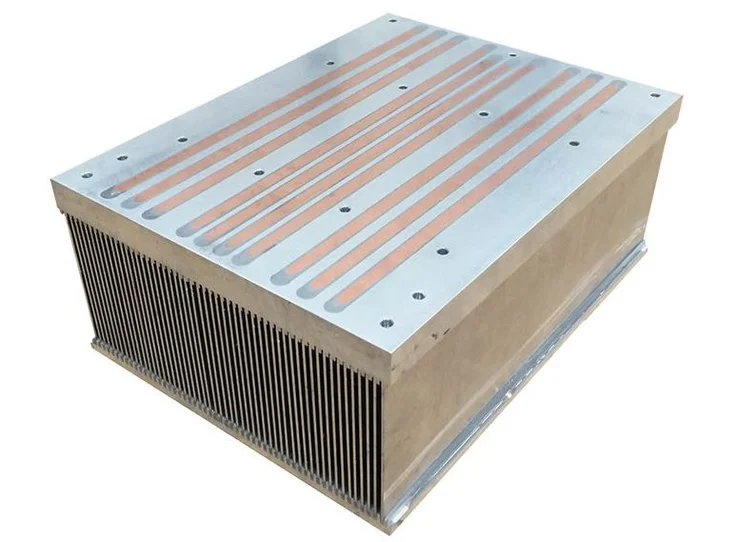
-
Power Distribution
Mersen's laminated bus bars not only streamline the power distribution process but also bring about cost-efficiency by reducing assembly time, wiring errors and material handling expenses.
Customized to meet specific needs, they eliminate the usual guesswork associated with assembly operations. Their unique design and structure allow them to function both as power distributors and integral parts of a system's structure.
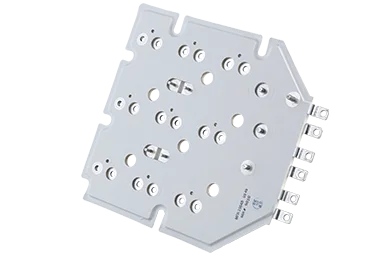
-
Solutions with graphite advanced materials for aerospace
-
-
01.
Space Optics
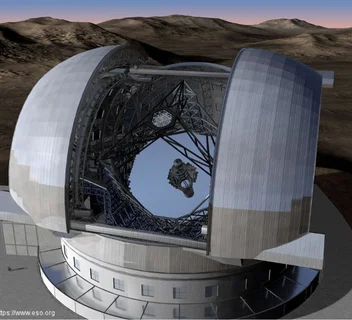
-
01.
Carbon Pump Vane
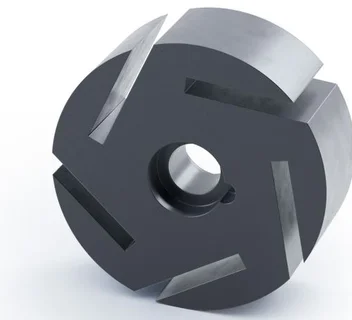
-
-
Why choose Mersen for your advanced materials?
A global leader for graphite specialties
Mersen has established itself as a global leader in the field of graphite specialties. With a deep-rooted expertise in advanced materials, Mersen's graphite solutions are tailored to meet the specific needs of the aerospace sector. From carbon mechanical seals to shaft seals, Mersen's graphite specialties are designed to deliver unparalleled performance in aerospace applications.
For optimal energy efficiency and weight saving
Energy efficiency and weight are critical factors in aerospace design. Mersen's advanced materials, particularly those involving solid silicon carbide or sintered silicon carbide, are optimized for these very attributes. The inherent properties of these materials, such as high thermal conductivity and lightweight nature, contribute to both energy efficiency and weight savings in aerospace components.
For high-quality advanced materials
Mersen is synonymous with quality. Whether it's graphite components or carbon materials, Mersen ensures that every product meets the highest standards of quality. These materials are crafted to withstand the rigorous conditions of aerospace applications, ensuring longevity and reliability.
For continuous innovation
Innovation is at the core of Mersen's ethos. With a commitment to continuous research and development, Mersen is always at the forefront of introducing innovative solutions in the realm of advanced materials. This dedication ensures that Mersen's offerings, from shaft seals to starter motor brushes, remain cutting-edge and meet the evolving needs of the aerospace industry.
-
How to choose your heat sink?
Assessing your usages
Before diving into the specifics, it's essential to understand the primary purpose of the heat sink. Will it be used in a high-frequency radar system, an onboard computer, or a power management module? Different aerospace applications have varying thermal demands, and understanding these will guide your choice.
Evaluating Thermal Performance Requirements
The efficiency of a heat sink is often gauged by its thermal performance. Depending on the intensity of the electronic component's operation, you'll need a heat sink that can dissipate heat effectively. For high-performance aerospace systems, it's crucial to opt for heat sinks that offer superior thermal conductivity.
Considering Material and Design Options
Materials play a significant role in the effectiveness of a heat sink. Different materials offer varying levels of thermal conductivity, which directly impacts their heat dissipation capabilities. It's essential to choose a material that aligns with the specific requirements of the aerospace application. Additionally, the design of the heat sink, whether finned, pin-type, or a combination, can significantly influence its heat dissipation rate.
Analyzing Airflow and Cooling Needs
In an aerospace environment, the availability and direction of airflow can vary. It's essential to choose a heat sink that aligns with the airflow patterns of the system it's integrated into. Moreover, understanding whether the application requires passive or active cooling will influence the heat sink design.
Factoring in the Size and Surface Area
Size is often at a premium in aerospace systems. The heat sink should be compact yet effective. A larger surface area generally means better heat dissipation, but it's also essential to ensure that the heat sink fits seamlessly within the system without causing spatial constraints.
-
How to choose between Solid silicon carbide, Graphite and Carbon Fibre Composite?
In the aerospace industry, the selection of materials is paramount. Each component, crafted from specific materials, brings unique advantages that enhance performance, ensure safety, and extend the equipment's lifespan.
-
Solid silicon carbide and its exceptional stiffness and mechanical strength
Solid Silicon Carbide (SiC) is known for its excellent rigidity, mechanical strength, and resistance to mechanical fatigue.
In aerospace applications, this translates to a component that can withstand harsh conditions, reducing the need for frequent replacements. Its high thermal conductivity ensures efficient heat dissipation, which is crucial for maintaining optimal operating temperatures.
Our Boostec(r) Sintered Silicon Carbide (SSiC) inherent resistance to corrosion ensures its longevity, even when exposed to aggressive chemicals or environments.
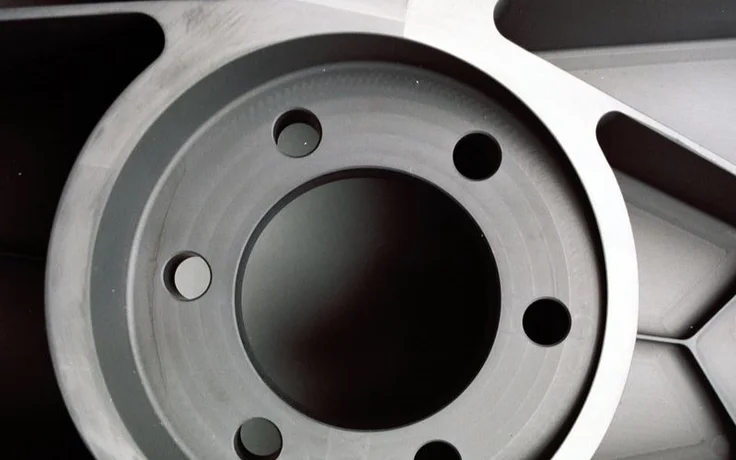
-
Carbon and graphite and their excellent resistance to high temperatures
Carbon and graphite materials have made a significant mark in the aerospace sector due to their lightweight nature, electrical conductivity, and resistance to high temperatures.
Their lightweight nature contributes to the overall weight reduction, a critical factor in aerospace design.
They can withstand high temperatures, making them suitable for applications where heat resistance is paramount. Furthermore, their excellent electrical conduction properties make them ideal for applications that demand efficiency without compromising on weight.
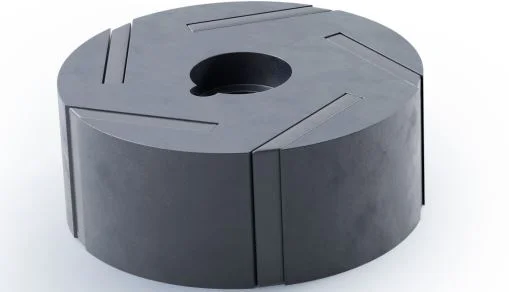
-
Carbon Fibre Composite (CFC) and its efficient resistance to corrosion
Carbon Fibre Composite is a marvel in material science, combining the strength of carbon fiber with the versatility of a composite.
In the aerospace sector, it offers an exceptional strength-to-weight ratio, which is crucial for aerospace structures. It retains its properties even at high temperatures, ensuring reliability in demanding aerospace environments. Additionally, carbon fiber composite's resistance to most forms of corrosion means that components made from it have an extended lifespan and require less maintenance.
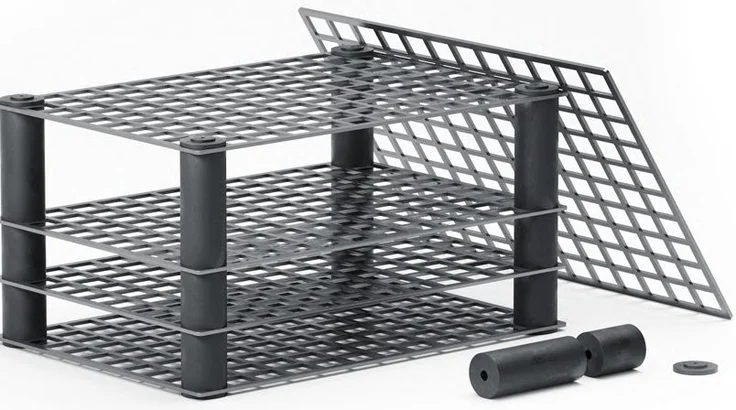
-
What can Mersen shaft seals and carbon mechanical seals offer you?
-
01.
Superior durability and longevity

-
01.
Excellent resistance to oxidation and wear

-
01.
High-performance sealing in demanding conditions

-
01.
Adaptability to fit your needs

-
-
Questions you might have about our advanced materials
-
What is the maximum temperature resistance of Mersen's shaft seals?
Mersen's shaft seals, known for their robustness, are engineered to operate efficiently in extreme temperature conditions. Leveraging advanced materials and innovative designs, these seals can endure temperatures up to 500°C. This high-temperature resistance ensures that they maintain their integrity and performance, even when exposed to the intense heat challenges commonly found in aerospace operations.
-
How to maintain the auxiliary motor brushes?
Regularly inspect the motor brushes. Mersen supports you in maintaining your motor brushes and other equipment. We offer preventive solutions to anticipate brushes replacement needs, such as alarm cables. Regular maintenance ensures that these brushes continue to offer efficient power transfer in various aerospace applications.
-
What is the main difference between a generator brush and a starter motor brush?
Both generator brushes and starter motor brushes play pivotal roles in aerospace electrical systems. The generator brush, typically used in power generation systems onboard aircraft, ensures a steady and efficient transfer of electrical power. On the other hand, the starter motor brush is crucial for initiating the aircraft's engine, providing the necessary spark to start the system.
-
How far can one see with Mersen Space Optics?
Mersen Boostec Space Optics offers unparalleled clarity in space observations. These optics, used in aerospace, are specially designed to capture and analyze events at very long distances. With Mersen Boostec Space Optics, you get all the information in space with great precision.
-
-
Need more?
Need to get information on advanced materials for aerospace?
-
Documentation
11/28/2024
